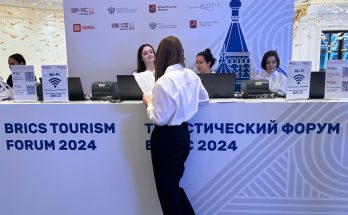
Amid escalating geopolitical rivalries and increasing Chinese domination of the South China Sea, Vietnam’s Ambassador to India Pham Sanh Chau has called for enhanced regional cooperation to ensure freedom of navigation and underlined the centrality of ASEAN in maintaining peace and stability in the region.
Terming the current situation in the South China Sea, marked by land reclamation and militarisation of islands by China, as a matter of increasing concern, the Vietnamese envoy appealed to all parties to refrain from any activity that will harm peace and stability in the region. “Countries in the region are worried about ongoing illegal reclamation of land and increasing intensity of rivalry between the US and China,” he said at a seminar organised in New Delhi on the third anniversary of the Hague-based PCA ruling in favour of the Philippines reinforcing its claims in South China Sea.
“It’s vitally important to be able to maintain peace and security in the region. We need to ensure freedom of navigation and overflight,” the envoy stressed.
The conference was organised by Society for Indian Ocean Studies in New Delhi on July 12. Prominent experts, including Baladas Ghosal, Chintamani Mahapatra, Srikanth Kondapalli and Admiral Pradeep Chauhan, Director General, National Maritime Foundation, participated and made presentations at the conference.
Progress in COC negotiations

Underlining the need for bolstering mutual trust among countries in the region, the Vietnamese envoy called for a balanced approach in resolving the South China Sea dispute and underlined that negotiations on the Code of Conduct are making progress. “The Code of Conduct should be binding, effective, efficient and substantial in accordance with the UN charter, UNCLOS and international rules. It’s a positive development,” he said. “It should be binding on all signatory parties,” he added.
The envoy warned against attempts to covert the region into “a theatre of competition between great powers.” “ASEAN and Vietnam should not be asked to choose sides,” he said.
“ASEAN solidarity and centrality should be a key factor in any emerging security architecture in the region. Any dispute in the region need to be negotiated and resolved peacefully without recourse to force,” said the envoy.

The envoy’s remarks stressing the need for a balanced approach came amid a week-long confrontation between Chinese and Vietnamese coastguard vessels around Vanguard Bank in the Spratly group of islands, claimed by Hanoi.
Many experts have expressed apprehensions that the stand-off may spark a wave of anti-China sentiment in Vietnam, similar to the one seen in 2014, when a Chinese oil rig arrived off the disputed Paracel Islands. China’s President Xi Jinping has conveyed to visiting Vietnamese National Assembly chairwoman Nguyen Thi Kim Ngan that the two countries should “safeguard maritime peace and stability with concrete actions”. The two sides also discussed cooperation on a code of conduct for the South China Sea.
Vietnam is set to take over the chairmanship of the ASEAN later this year, and hence will have a critical role in shaping the Code of Conduct.
Bigger role for India

Rising Asian powers like India will also have an important role to play in promoting peace and stability in the region through its Act East policy and Indo-Pacific strategy. Speaking at the conference, Lalit Mansingh, former foreign secretary and chairman, Kalinga International Foundation, argued for a more proactive role by India in shaping peaceful resolution of the South China Sea dispute. “India should proclaim its interests a little more vigorously in the South China Sea. India is an interested party, and should be supportive of ASEAN’s initiative,” said Mr Mansingh. “India has as much stake in the South China Sea as the US, Japan and other major players,” he said.
Author Profile
- India Writes Network (www.indiawrites.org) is an emerging think tank and a media-publishing company focused on international affairs & the India Story. Centre for Global India Insights is the research arm of India Writes Network. To subscribe to India and the World, write to editor@indiawrites.org. A venture of TGII Media Private Limited, a leading media, publishing and consultancy company, IWN has carved a niche for balanced and exhaustive reporting and analysis of international affairs. Eminent personalities, politicians, diplomats, authors, strategy gurus and news-makers have contributed to India Writes Network, as also “India and the World,” a magazine focused on global affairs.
Latest entries
 In ConversationJuly 26, 2024India-Italy defence collaboration can extend to third countries: Anil Wadhwa
In ConversationJuly 26, 2024India-Italy defence collaboration can extend to third countries: Anil Wadhwa In ConversationJuly 23, 2024Italy views India as a key partner in Indo-Pacific: Vani Rao
In ConversationJuly 23, 2024Italy views India as a key partner in Indo-Pacific: Vani Rao DiplomacyJune 29, 2024First BRICS unveils a roadmap for boosting tourism among emerging economies
DiplomacyJune 29, 2024First BRICS unveils a roadmap for boosting tourism among emerging economies India and the WorldJune 11, 2024On Day 1, Jaishankar focuses on resolving standoff with China
India and the WorldJune 11, 2024On Day 1, Jaishankar focuses on resolving standoff with China






